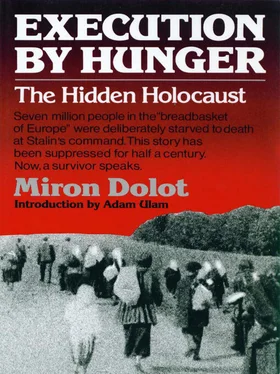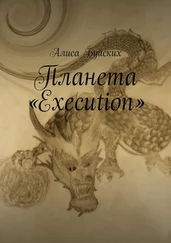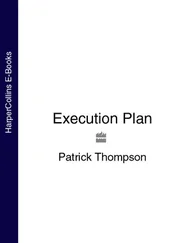Shevchenko was struggling hand-to-hand with a few commission members; he tried to wrench himself free from them while shouting that he wouldn’t leave the house which he had built with his own hands and by the sweat of his brow. He was pleading with them to leave him alone, for he was poor and had no more grain. His wife clung to the doorpost, resisting all attempts to be pulled away. Their frightened and helpless children just stood there, crying bitterly. Comrade Thousander did not participate in the struggle; he was smoking and watching his men carry out his orders.
After they subdued Shevchenko, they tied his hands behind his back and led him out to a waiting cart. His wife, still struggling, had to be carried out of the house by her hands and feet and thrown into the cart. There was nothing left for the children to do but meekly follow their parents. One of the men drove the one-horse cart with its pathetic load to the village center. After a while, the rest of the members of the commission emerged from the house. Comrade Thousander locked it with a padlock; then they all left as if nothing had happened.
We learned later that Shevchenko’s house was to become the headquarters for the First Hundred. The previous headquarters, had been burned down during the riot. Shevchenko had become the innocent scapegoat for that crime because the house that he had worked so hard to build was needed to replace the destroyed building. We found out later that the Shevchenko family, together with other evicted victims, were taken from the village center to the railroad station and transported somewhere, with no trace.
Some village wit who still preserved his sense of humor, nicknamed the newly arrived Party Representatives the “Morticians.” This nickname caught on, and soon the comrade Thousanders became known among us as the “comrade Morticians.” Of course, no one would have dared to use that nickname openly. Yet a better title could not have been invented, for our village under their administration was full of starving people: some who died; others who were about to die. This specter of death was obvious to anyone entering the village. Yet, the Thousanders and a multitude of other diverse Party and government representatives, continued their search for grain from house to house unabated, in spite of seeing the victims of starvation with their very own eyes. In most cases, instead of finding grain in the households, they found the bodies of starved farmers. Even after such gruesome discoveries, they did not stop their search. The Party representatives’ mission puzzled us. Collectivization had been completed and was no longer an issue. What then were they looking for in our village? Was it that the government needed convincing proof that we had all indeed perished? Bizarre as it may be, this seems to be the best answer to this question.
One Sunday in June we were summoned to a Hundred meeting. The meeting was to be held at Shevchenko’s house. When my mother and I arrived the meeting had already started. Upon entering, I noticed that the interior had been completely remodeled: the walls that once partitioned the house into two rooms and a kitchen had been torn down. Now the place had become a large meeting hall with a raised platform and a rostrum at which the village Thousander, Comrade Livshitz, was making a speech. Portraits of Party leaders decorated the walls, and a long banner was hanging from the ceiling with the slogan, “The Struggle for Bread Is a Struggle for Socialism!” Another slogan on the right wall proclaimed, “Death to Kurkuls!”
I looked around me at the audience. It was not large; the hall was only half-filled. There were about thirty people present, all pathetic-looking: some were emaciated, walking skeletons; others, on the contrary, were swollen from starvation. All were silent, depressed, and apathetic.
Comrade Thousander was speaking about the Joint Resolution of the Council of Peoples’ Commissars and of the Central Committee of the Communist Party of the Soviet Union concerning the grain delivery quota from the 1932 crop. The gist of his speech was the victory of the collective system of agriculture over the independent one. Based on that victory, he asserted, and by the annihilation of the kurkul elements in the villages, the USSR had achieved a great development of grain farming, a great expansion of acreage under crop, and great gross yields of grain. In 1931, the delivery to the State was increased to almost 2.5 times the amount delivered in 1928 when independent farming prevailed. Comrade Thousander reiterated that the Soviet Union had overcome the grain farming crisis thanks only to a realization of Lenin’s Party policies. Then he announced that in 1932 Ukraine, as a whole, and our village too, would have to deliver the same quota of grain as last year.
Having finished reading and interpreting the Joint Resolution, Comrade Thousander went on to praise collective farming. He tried hard to prove that through collective agriculture the USSR would soon catch up with, and overtake, America and Europe in grain farming. The increase in grain delivery from the crops of 1930 and 1931 served as good proof of it, he said. He concluded by demanding that the grain procurement quota for 1932 be fulfilled at any cost. It was to be done as soon as the crop was harvested instead of waiting until January 1933, as the resolution indicated. By doing so, we the villagers, would prove our loyalty to the Communist cause. With this the meeting closed. There were no questions; no discussions. One could see that Comrade Thousander and his stooges were in a hurry to leave. They wanted to avoid hearing about the starvation among us.
Comrade Thousander’s pep talk did not make much sense. His figures for the total grain delivery quota for the entire Ukraine, and for our village in particular, did not mean anything to us, or matter much. Our grain bins, we knew and understood only too well, were empty. We also knew that attributing the increase of the 1931 grain delivery over that of 1928 to the superiority of collective farming over individual farming was deceitful. We knew very well from our own experience that the increase was due to other factors. To increase grain delivery in 1930 and 1931, all stocks and reserves, and even seed for sowing, were ruthlessly confiscated from the farmers without any regard to their needs.
Comrade Thousander’s announcement that in 1932 we had to deliver the same quota of grain as in 1931 was a hard blow to us. We simply could not fulfill his demands. The 1932 grain quota was not based on the actual amount of grain sown, cultivated, and harvested; it was based upon an unrealistic government plan.
The farmers were either unused to or not interested in working in the collective farms. There was a shortage of manpower and draft animals. Because of famine, many villagers were either too weak to work or had left the village altogether in search of food. As a result, much collective land stood idle. A great deal, if not half, of the grain crop was lost in fields during reaping; such losses occurred during the harvest of 1931, and even more losses were expected during the harvest in 1932. Besides that, the farmers had no more grain reserves for sowing in the spring of 1932. Their corn bins stood empty or had been used for firewood. Thus Moscow’s demand to deliver the same grain quota in 1932 as in previous years was not only impossible, but promised to be catastrophic.
While Comrade Thousander and his cohorts went on with their campaign for collecting and delivering the grain of the 1932 harvest to the state, the life of our villagers took a turn from bad to worse. Those in the most deplorable conditions were the villagers who could not plant their vegetable gardens, as well as those who were not able to work at the collective farm. As mentioned already, farmers who did work there received either one pound of bread or one or two pounds of flour daily. In addition, two times a day, they were fed a hot meal, usually some soup thickened with flour. It was hardly enough to sustain a working-person’s life, but it was better than nothing. The working villagers still had the problem of feeding and supporting their dependents, for whom they received no extra food. The children, the elderly, and the sick had to be sustained on what those working would bring them from work surreptitiously.
Читать дальше












